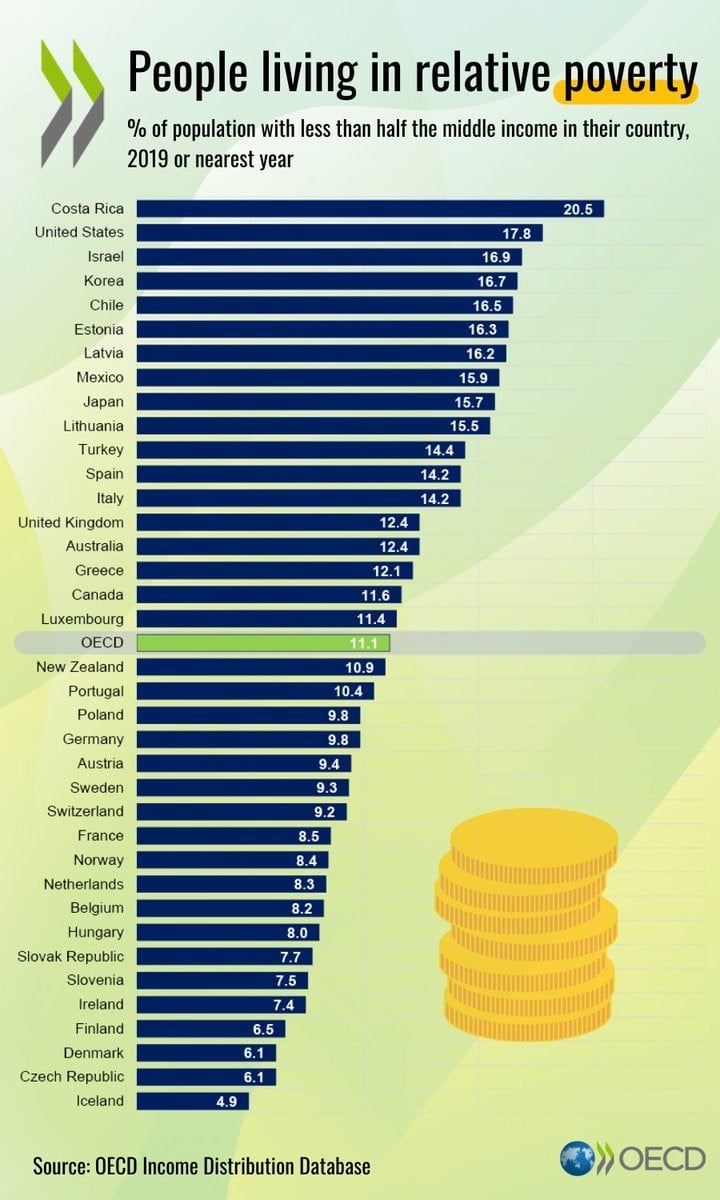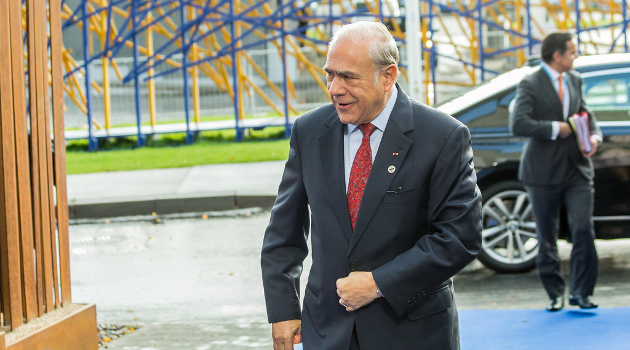I created the Eighth Theorem of Government to illustrate the difference between well-meaning people (who want to help the poor) and zero-sum people (who seem to think some people are poor because other people are rich).
This raises the interesting question of whether folks in the latter group are misguided or malicious?
For what it’s worth, I assume most people who fixate on inequality simply don’t understand the issue.
I like to think that they would change their minds if – for instance – they were shown Scott Winship’s devastating, slam-dunk response to Gabriel Zucman.
But there are others (like Zucman) who almost certainly know better, yet they push the inequality narrative for political or ideological reasons.
The bureaucrats at the Organization for Economic Cooperation and Development definitely also belong in the malicious category.
I first exposed the OECD’s disingenuous approach back in 2012, noting that the Paris-based bureaucrats used an utterly dishonest definition of poverty to make the laughably inaccurate claim that there was more poverty in the United States than in nations such as Greece, Hungary, Turkey, and Portugal.
Well, the OECD is still being dishonest. Here’s a look at the bureaucracy’s latest “poverty” measurement.

For those of us who actually pay attention to details, the data in the above chart have nothing to do with poverty.
Instead, the OECD is showing a particular way of measuring how income is distributed (in this case, the share of the population with less than half of the average income).
To see why it is profoundly absurd to measure poverty by looking at the distribution of income, consider these two examples.
- Haiti is a wretchedly poor nation, with per-capita yearly income of $1729. But since almost everyone (other than the political elite) in the country is equally destitute, Haiti would have almost no poverty according to the OECD’s perverse definition.
- Poor people in the United States have income equal to (or greater than) than middle class people in other developed nations, yet OECD bureaucrats want people to think poverty is a bigger problem in America than in a backward economy like Mexico’s.
I’ll close by pointing out the greatest absurdity of all.
If something miraculous happened and everyone in the United States somehow wound up with ten times as much income next year, guess what would happen to America’s poverty rate, as measured by the OECD? How much would it decrease?
Give yourself a gold star if you correctly answered that it would not change. At all.
What a crock of you-know-what.
P.S. The OECD is not the only guilty party when it comes to lying about poverty. Others who (willingly or unwittingly) misrepresent distribution data as poverty data include:
- The United Nations
- The New York Times
- The Equal Welfare Association
- Eduardo Porter of the New York Times
- Germany’s Institute of Labor Economics
- The Obama Administration
- The European Commission
- Professor Noah Smith
- The Economist
P.P.S. It’s also worth noting that poor nations aren’t poor because rich nations are rich.


